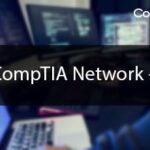Top 10 Myths About Ethical Hacking — Debunked!

Top 10 Myths About Ethical Hacking — Debunked!
Myths About Ethical Hacking
In a time when cyber dangers are the norm, ethical hacking has become a potent weapon for thwarting malevolent assaults. However, despite its significance, a lot of people still have misconceptions about ethical hackers, frequently mistaking them for cybercriminals or exaggerating their skills.
Your Future Starts Here – Reserve Your FREE Demo Class Now!
![]()
To help you understand what ethical hacking is all about, protecting, not exploiting, let’s debunk the top 10 myths about it.
? Myth #1: Ethical Hackers Are Just Legal Hackers
✅ Truth: Ethical hackers adhere to stringent moral and legal standards. They are qualified experts whom businesses pay to identify and address security flaws. Their work is sanctioned and documented, in contrast to black hat hackers.
? Myth #2: Anyone Who Hacks is a Criminal
✅ Truth: Hacking is merely a skill; what matters most is purpose. Instead of causing harm, ethical hackers utilize their expertise to safeguard. Spotting flaws before actual attackers can take advantage of them is essential to cybersecurity.
? Myth #3: Ethical Hacking Is Just About Penetration Testing
✅ Truth: It’s much more than that. Ethical hacking encompasses vulnerability assessments, social engineering, code review, network analysis, and security audits, though penetration testing is an essential component.
? Myth #4: You Must Be a Programming Expert
✅ Truth: To begin, you don’t have to be an expert in coding. Although programming is helpful, many ethical hacking techniques place greater emphasis on tools, logic, and security procedures. At the basic level, scripting knowledge (such as Python or Bash) is helpful but not required.
? Myth #5: Ethical Hackers Work Alone in the Dark
✅ Truth: Within corporations, the majority of ethical hackers operate in teams. To strengthen the organization’s overall security posture, they frequently work in tandem with developers, system administrators, and security analysts.
? Myth #6: You Need a Computer Science Degree
✅ Truth: Although it is not necessary, a degree is beneficial. A large number of effective ethical hackers are self-taught or hold credentials such as CompTIA Security+, OSCP, or CEH (Certified Ethical Hacker). Academic degrees are less important than practical abilities.
? Myth #7: Ethical Hacking Is Illegal in Some Countries
✅ Truth: When done with consent, ethical hacking is permissible. Ethical hacking is completely legal and respected as long as the system owner has given permission and the action complies with the law.
? Myth #8: All Hackers Are the Same
✅ Truth: There are significant variations:
- Black Hat = Malicious hackers
- White Hat = Ethical hackers
- Gray Hat = Hackers who might violate laws but don’t act with malicious intent. Ethical hackers strictly belong to the white hat
? Myth #9: Ethical Hackers Always Find Every Vulnerability
✅ Truth: No system can be said to be completely safe. Although ethical hacking greatly lowers risk, program updates, configuration modifications, and human mistakes can all result in the creation of new vulnerabilities.
? Myth #10: Ethical Hacking Is Only for Big Companies
✅ Truth: Small enterprises, startups, and even individuals stand to gain. Everyone needs cybersecurity. Companies of all sizes can benefit from ethical hackers’ assistance in safeguarding client information, upholding legal requirements, and fostering online trust.
✅ Final Thoughts
Ethical hacking is a respectable, in-demand career that fortifies cybersecurity frameworks globally; it is not a suspicious task or operation. We hope that by dispelling these widespread myths, you will now recognize ethical hackers as the unsung heroes of the digital realm.
Moreover, if you have also developed a good understanding of the same and are interested in starting a great career in cybersecurity or ethical hacking right from scratch, it is certainly the right time for it. By enrolling in the 1 Year Cybersecurity Diploma Powered by AI through the highly qualified faculty members of Craw Security, the Best Cybersecurity Training Institute in India, you will have the best training experience. To learn more about the same or any other proactive training program that is duly mentioned on the Official Website of Craw Security, you can just visit the website or give us a call at the 24X7 hotline mobile number, +91-9513805401 and have a word with our superb educational counselors with good expertise in giving their best of advice to all the interested and needy candidates.

















